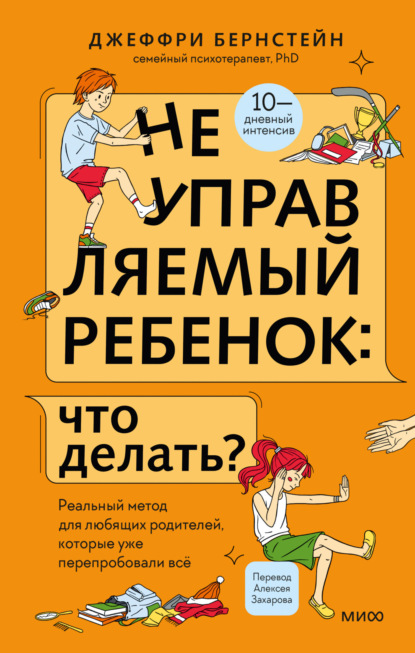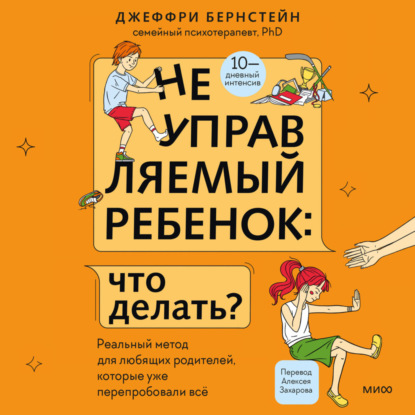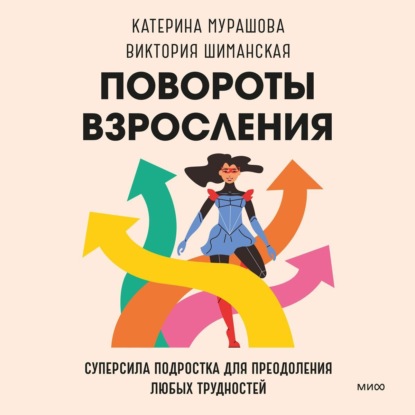
Полная версия
Родительская интуиция. Нейронаука о том, как нас меняет родительство
36
Jay S. Rosenblatt, Views on the Onset and Maintenance of Maternal Behavior in the Rat, in Development and Evolution of Behavior: Essays in Memory of T. C. Schneirla, ed. Lester R. Aronson, Ethel Tobach, Daniel S. Lehrman and Jay S. Rosenblatt (San Francisco: W. H. Freeman, 1970), 496, https://archive.org/detais/developmentevolu00aron.
37
Rosenblatt, Views on the Onset and Maintenance of Maternal Behavior in the Rat, 498. Мне хочется думать, что Розенблатт и будущая судья Верховного суда Рут Бейдер Гинзбург были приятелями. Она преподавала в Ратчерском университете в то же время, когда Розенблатт публиковал там свой знаковый труд о родительском поведении крыс. Я представляю, как они обсуждали свои теории о том, как «старые представления» о гендерной принадлежности влияют на науку и закон. Я не нашла никаких подтверждений их дружбе, но похоже, что они вращались в одних кругах. Розенблатт плотно работал с Лерманом, а жена Лермана, Дороти Диннерштейн, была психологом и феминисткой. Диннерштейн написала The Mermaid and the Minotaur («Русалка и Минотавр») – крупную работу о социальных и психологических последствиях преимущественно женского воспитания детей. В 1971-м, в тот же год, когда Гинзбург основала Проект по правам женщин (Women’s Rights Project) при Американском союзе защиты гражданских свобод, Диннерштейн с коллегой подали жалобу на Ратчерский университет, обвиняя его в неравноправном положении женщин-преподавателей.
38
Lisa Feldman Barrett, Seven and a Half Lessons about the Brain (Boston: Houghton Mifflin Harcourt, 2020), 19–22.
39
Alison S. Fleming, Michael Numan and Robert S. Bridges, Father of Mothering: Jay S. Rosenblatt, Hormones and Behavior 55, № 4 (April 2009): 484–87, https://doi.org/10.1016/j.yhbeh.2009.01.001.
40
Joseph S. Lonstein, Frédéric Lévy and Alison S. Fleming, Common and Divergent Psychobiological Mechanisms Underlying Maternal Behavior in Non-Human and Human Mammals, Hormones and Behavior 73 (July 2015): 156–85, https://doi.org/10.1016/j.yhbeh.2015.06.011.
41
Eyal Abraham and Ruth Feldman, The Neurobiology of Human Allomaternal Care: Implications for Fathering, Coparenting, and Children’s Social Development, in Evolutionary Perspectives on Non-Maternal Care in Mammals: Physiology, Behavior, and Developmental Effects, ed. Stacy Rosenbaum and Lee T. Gettler, special issue, Physiology & Behavior 193, part А (September 1, 2018): 25–34, https://doi.org/10.1016/j.physbeh.2017.12.034.
42
Kirsten Swinth, Feminism’s Forgotten Fight: The Unfinished Struggle for Work and Family (Cambridge, MA: Harvard University Press, 2018), 42–69.
43
Lonstein, Lévy and Fleming, Common and Divergent Psychobiological Mechanisms Underlying Maternal Behaviors, https://doi.org/10.1016/j.yhbeh.2015.06.011.
44
Pawluski, Lambert and Kinsley, Neuroplasticity in the Maternal Hippocampus, https://doi.org/10.1016/j.yhbeh.2015.06.004.
45
The Teen Brain: 7 Things to Know, National Institute of Mental Health, переиздание 2020 года, https://www.nimh.nih.gov/health/publications/the-teen-brain-7-things-to-know/index.shtml.
46
Фрэнсис Дженсен, нейробиолог, которая совместно с Эми Эллис Натт написала The Teenage Brain: A Neuroscientist’s Survival Guide to Raising Adolescents and Young Adults, New York: Harper, 2015 (издана на русском языке: Дженсен Ф. Э., Натт Э. Э. Мозг подростка. Спасительные рекомендации нейробиолога для родителей тинейджеров. М., 2021. Прим. ред.), часто рассказывает ученикам старших классов о работе их мозга. «Подростки стремятся понять себя, – сказала она в интервью журналу Time. – Думаю, разговоры на эту тему дают им больше озарений». Alexandra Sifferlin, Why Teenage Brains Are So Hard to Understand, Time, September 8, 2017, https://time.com/4929170/inside-teen-teenage-brain/.
47
Chelsea Conaboy, Motherhood Brings the Most Dramatic Brain Changes of a Woman’s Life, Globe Magazine, Boston Globe, July 17, 2018, https://www.bostonglobe.com/magazine/2018/07/17/pregnant-women-care-ignores-one-most-profound-changes-new-mom-faces/CF5wyP0b5EGCcZ8fzLUWbP/story.html.
48
Darwin’s Women, Darwin Correspondence Project, University of Cambridge, YouTube video, 19:45, posted September 8, 2013, Cambridge University, https://www.youtube.com/watch?v=9qZxa3WjZQg&t=595s.
49
Charles Darwin, The Descent of Man, and Selection in Relation to Sex (repr., London: Penguin Classics, 2004), 128. (Дарвин Ч. «Происхождение видов и половой отбор». Прим. пер.)
50
Carol Meyers, Rediscovering Eve: Ancient Israelite Women in Context (Oxford and New York: Oxford University Press, 2012), 63–65. Большей части современных представлений касательно истории Евы (например, что она была соблазнительницей, обманувшей Адама, и что ее поступки привели к «падению» человечества) в действительности нет в Книге Бытия – все это пришло из более поздних текстов-интерпретаций. Подобные разночтения «сами по себе стали каноническими» – с серьезными последствиями, пишет Майерс.
51
Laurel Thatcher Ulrich, Good Wives: Image and Reality in the Lives of Women in Northern New England, 1650–1750, reissue ed. (New York: Vintage, 1991), 239; Meyers, Rediscovering Eve, 121–25.
52
Ulrich, Good Wives, 157.
53
Ulrich, Good Wives, 238–40.
54
Kim Anderson, Giving Life to the People: An Indigenous Ideology of Motherhood, in Maternal Theory: Essential Readings, ed. Andrea O’Reilly (Bradford, Canada: Demeter Press, 2007), 761–81.
55
Margaret D. Jacobs, Maternal Colonialism: White Women and Indigenous Child Removal in the American West and Australia, 1880–1940, Western Historical Quarterly 36, № 4 (Winter 2005): 453–76, htttps://doi.org/10.2307/25443236.
56
Amanda Coletta and Michael E. Miller, Hundreds of Graves Found at Former Residential School for Indigenous Children in Canada, Washington Post, June 24, 2021, https://www.washingtonpost.com/world/2021/06/23/canada-cowessess-residential-school-graves/; Brad Brooks, Native Americans Decry Unmarked Graves, Untold History of Boarding Schools, Reuters, June 22, 2021, https://www.reuters.com/world/us/native-americans-decry-unmarked-graves-untold-history-boarding-schools-2021-06-22/.
57
Marie Jenkins Schwartz, Birthing a Slave: Motherhood and Medicine in the Antebellum South (Cambridge, MA: Harvard University Press, 2006), 13–31; Angela Y. Davis, Women, Race & Class (New York: Random House, 1981), 15. (Книга Анджелы Дэвис издавалась на русском языке под названием «Женщины, раса, класс». Прим. ред.).
58
Meyers, Rediscovering Eve, 52, 121; Elinor Accampo, Blessed Motherhood, Bitter Fruit: Nelly Roussel and the Politics of Female Pain in Third Republic France (Baltimore: Johns Hopkins University Press, 2006), 3; Shari L. Thurer, The Myths of Motherhood: How Culture Reinvents the Good Mother (Boston: Houghton Mifflin Harcourt, 1994), 183.
59
Thurer, Myths of Motherhood, 184.
60
Stephanie Coontz, The Way We Never Were: American Families and the Nostalgia Trap (New York: Basic Books, 1992), 52–53.
61
Thurer, Myths of Motherhood, 195–98; Kimberly A. Hamlin, From Eve to Evolution: Darwin, Science, and Women’s Rights in Gilded Age America, reprint ed. (Chicago: University of Chicago Press, 2015), 6–7.
62
Accampo, Blessed Motherhood, Bitter Fruit, 3.
63
Edward Higgs and Amanda Wilkinson, Women, Occupations and Work in the Victorian Censuses Revisited, History Workshop Journal 81, № 1 (1977): 87–108.
64
Claudia Goldin, Female Labor Force Participation: The Origin of Black and White Differences, 1870 and 1880, Journal of Economic History 37, № 1 (1977): 87–108.
65
Coventry Patmore, The Angel in the House (London: Cassel and Co, 1887).
66
Coontz, The Way We Never Were, 11–12.





